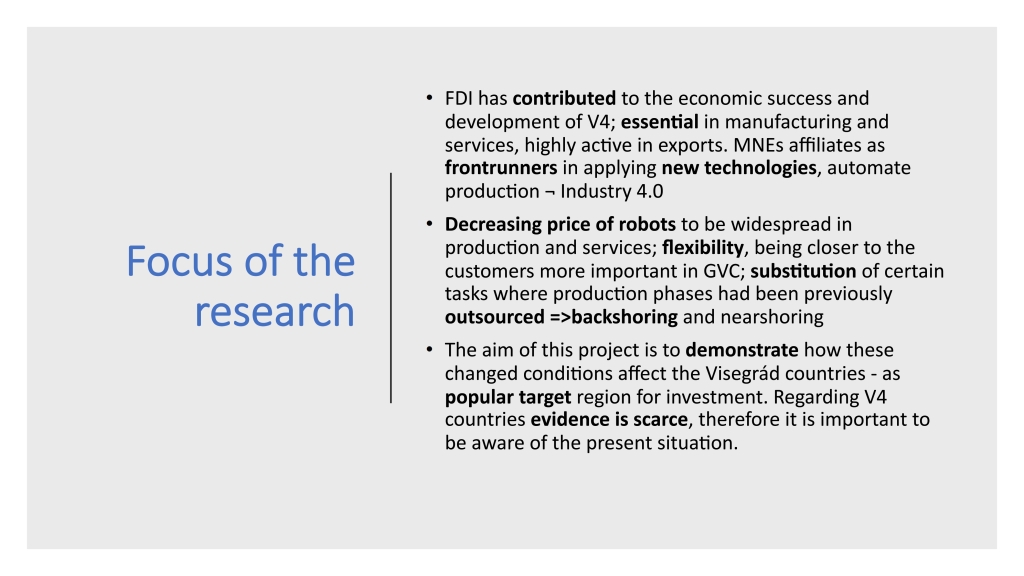
It is well-known that foreign direct investment (FDI) has contributed to the economic success and development of V4.
The role of foreign-owned companies are essential in manufacturing and services; they are also highly active in exports. Affiliates of multinational companies have been frontrunners in applying new technologies, automate production. This is strongly linked to the so-called Industry 4.0 concept that also involves the internet of things, additive manufacturing, artificial intelligence, etc. With the decreasing price of robots, these are about to be widespread in production and services. At the same time, flexibility, rapidity, being closer to the customers have become more important in global value chains. The consequence is the substitution of certain tasks, the labour force in those areas to where production phases had been previously outsourced. Backshoring and nearshoring of investments have taken place already. The aim of this project is to demonstrate how these changed conditions affect the Visegrád countries – as a popular target region for investment. So far relocations of FDI and Industry 4.0 have been analysed mainly separately, but in recent years, connections are more apparent. Regarding V4 countries, the evidence is scarce; therefore, it is important to be aware of the present situation.
The issues and challenges faced by V4 countries in the area of FDI are largely similar.
At the same time, V4 countries compete intensively among themselves for significant FDI projects (e.g. in automotive, electronics, machinery industry and services). V4 countries have rather similar economic endowments and similar problems. Labour shortage is a common barrier, and wage increase is a common tendency. The level of business digitalisation is similarly low compared to EU-average. We intend to provide policy recommendations valid for all V4 area.
Our project will gather evidence from survey results and/or interviews with companies and persons responsible for policymaking.
The aim is to call the attention of the public (media and companies) and revitalize discussion on Industry 4.0 and foreign investments. Apart from that, we will formulate recommendations for policymakers about how to shape future policy towards FDI in terms of attracting and maintaining investments. The project will also examine a long term-challenge of eroding locational advantages of V4 countries, based on cheap, skilled labour, and consider policy actions necessary to face this challenge. We intend to involve SMEs in all participating countries to the discussion, inviting them to the workshop and conference. Results will be published and disseminated in a conference to a wide audience, including policymakers.

